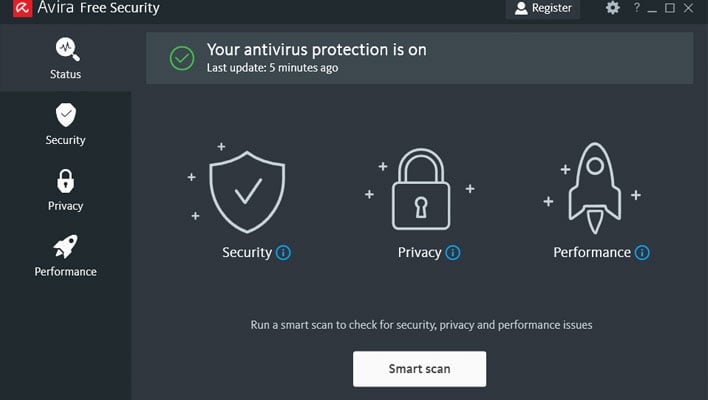Avira Antivirus Is Causing Windows PCs To Run So Hard They Freeze Up, Fix Available

One of the telltale signs that your PC has become ill with a virus is an unexpected slowdown in performance. Various forms of malware can sometimes feast on your system's resources, whether it's a hidden cryptocurrency miner, keylogger, or something else. Ironically, a recent update to Avira's antivirus software is having the same effect on system PCs, with users reporting system freezes in Windows.
The issue came to light this week in a post on Reddit. A user who goes by "kiiniiwiinii" reported that their PC had suddenly begun freezing up, which prompted them to start disabling background apps one by one, until only Avira remained running.
"Two other people I know had the same issue (both have Avira). Fixed it by going into safe startup and uninstalling Aviera. This along with the game booster (that we didn't enable) causing lag (took forever to figure out the cause) and the horrible support, I will be cancelling my subscription and keeping Avira uninstalled," the user wrote.
Several others chimed in to the Reddit thread and said they too were experiencing the same performance hiccup. One user said they noticed the apparent glitch was causing Avira to utilize 100% of their processor and memory resources. Others reported seeing the same issue on dozens of client PCs. So, what gives?
Avira's parent company, Gen Digital, confirmed the issue in a statement to Heise.de. According to Gen Digital, a bug in Avira's firewall was causing the issue "under a certain condition." The company also said that the issue has been resolved via a new software update.
"We are aware that a recent update from Avira has caused problems for some Windows 10 and Windows 11 users. These were automatically resolved by an update released on Monday, December 11th [at] 11:30 a.m. (CET). In the unlikely event that the update has not reached all computers, users can contact the Avira support team who will be happy to help them," Gen Digital said.
Interestingly, Gen Digital also said that if the update does not arrive for some reason, "uninstalling the antivirus software will help. This activates Microsoft Defender under Windows 10 and Windows 11, which protects against malware in unmanaged environments."
It's possible that something got lost in translation, but otherwise it's unusual to see a third-party antivirus provider recommend sticking with Microsoft's built-in AV after uninstalling their software, rather than uninstalling and then reinstalling the latest build. The message Avira is probably trying to relay is that uninstalling its AV software (temporarily or permanently) will not leave PCs unprotected, as Defender will take back the baton.
This issue aside, Avira generally performs well in independent third-party AV testing, such as those conducted by AV-Test and AV Comparatives. So does Microsoft's built-in Defender protection, though.

